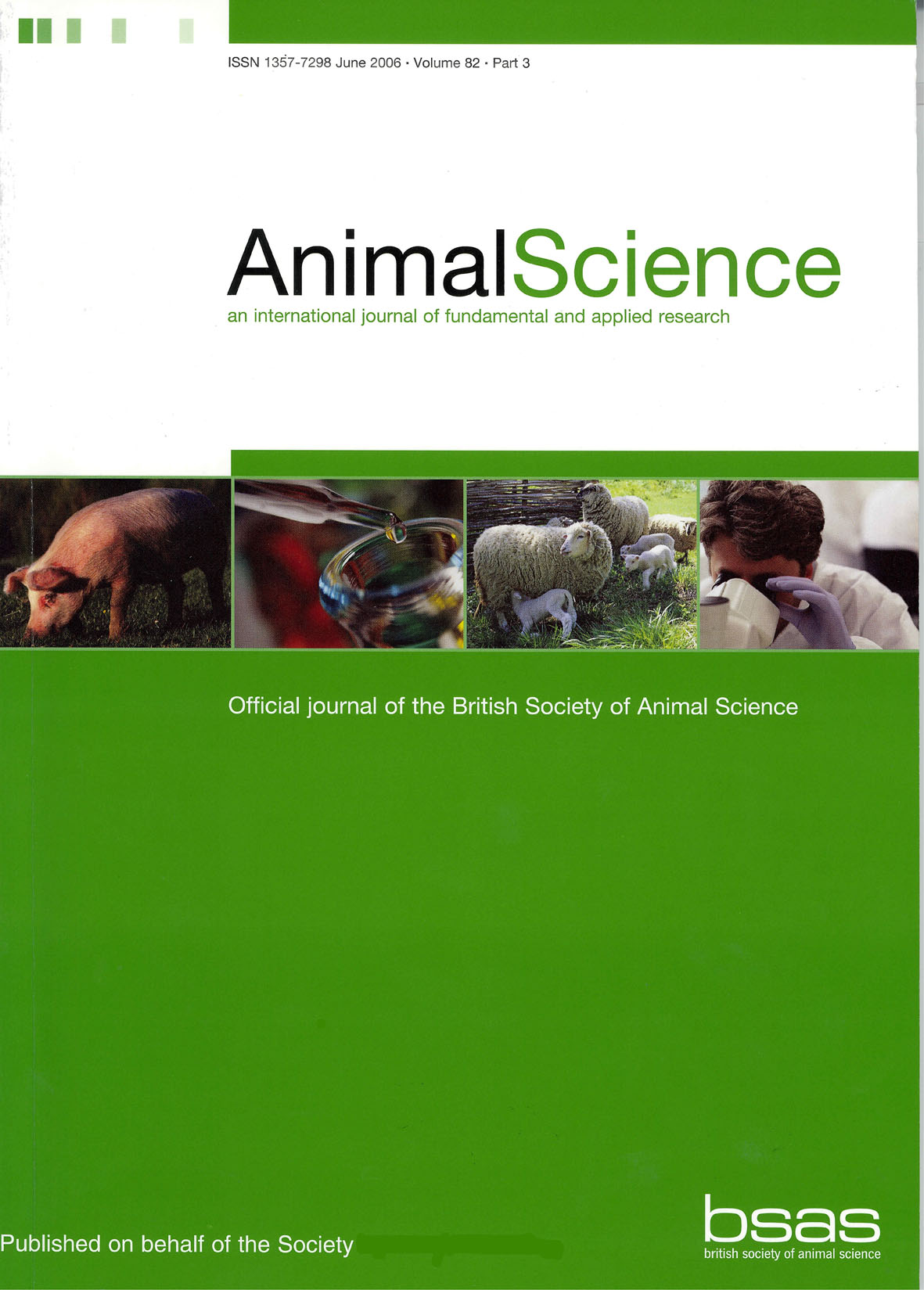Article contents
Tissue expression of uncoupling proteins in piglets given a low protein diet: a rôle for UCP2 and UCP3 in diet-induced thermogenesis
Published online by Cambridge University Press: 09 March 2007
Abstract
The purpose of the study was to investigate the rôle of novel mitochondrial uncoupling proteins UCP2 and UCP3 in the poor efficiency of energy utilization observed in piglets offered a low protein diet. Eight male piglets (Landrace × Large White) from different litters were allocated randomly to one of two groups; a high protein group (HP) was given restricted amounts of a diet containing 270 g/kg of crude protein whereas the low protein group (LP) was offered ad libitum a diet containing 27 g/kg of crude protein. The experimental period extended over 4 weeks, including an initial period of 1 week for adaptation. Live weights were recorded weekly and food residues were weighed daily. During the 2nd and 3rd weeks, faeces were collected for measurement of digestible energy intake. Over the last 2 weeks whole body oxygen consumption was measured by indirect calorimetry before, 1·5 h after and 3·5 h after the start of feeding. The piglets were killed at the end of week 4 and tissue expressions of UCP2 and UCP3 were measured by Northern blot analyses using a partial length pig UCP2 probe that had high homology to both UCP2 and UCP3. The HP group maintained their live weight during the experimental period whereas the live weight of the LP group increased significantly (P < 0·01) but only slightly despite a digestible energy intake that was more than twice that of the HP group (P < 0·01). Whole body oxygen consumption of the LP piglets was about three times that of the HP piglets (P < 0·05), with similar increases 1·5 h after feeding (P < 0·05) in both groups indicating increased thermogenesis. A marked increase in the expression of UCP2 and UCP3 was observed in the skeletal muscle, adipose tissue and spleen of the LP piglets. The results are consistent with a rôle for UCP2 and UCP3 in diet-induced thermogenesis in piglets and specifically in the regulation of efficiency of energy utilization in pigs.
- Type
- Research Article
- Information
- Copyright
- Copyright © British Society of Animal Science 2005
Footnotes
References
- 4
- Cited by


